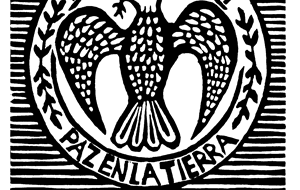Venezuela: Nationalizing key industries
In line with bringing strategic industries under state control, the Venezuelan government last week announced plans to nationalize a gas compression plant, the Guyana Steelmaking Complex, two iron producing facilities, a briquetted iron plant and a ceramic tile producer. The National Assembly passed enabling legislation in early May. Venezuelanalyis.com provided no information as to financial terms by which transnational corporations would relinquish ownership.
President Hugo Chavez not only outlined plans for a “socialist industrial complex,” but also indicated that worker assemblies would be choosing managers for state-owned companies.
The government has already nationalized oil production joint ventures and telecommunication companies along with a bank, a cement factory and the 5,000-worker SIDOR steel plant.
Iraq: Corruption leads to food shortages
The Ministry of Planning and Development Cooperation released a survey this month indicating that of 120,000 families qualifying for food assistance, almost 20 percent received no state-supplied food for 13 months and over 31 percent received none for 7 to 12 months. Trade Minister Abdul-Falah al-Sudani, accused of manipulating food imports, faces a no-confidence vote in Parliament where an oversight committee reported, “Billions of dollars have been wasted in this ministry.”
Iraq’s food rationing system, initiated in 1995 as part of the UN oil-for-food program, operated effectively until the 2003 U.S.-led invasion. Since then, according to IRIN news service, the system has performed poorly “due to insecurity, poor management and corruption.”
Myanmar: Democracy leader faces more jail time
The Association of Southeast Asian Nations (ASEAN) last year insisted that high-profile government opponent Aung San Suu Kyi, a Nobel Peace Prize winner, be released. Her 13-year house arrest was to have ended on May 27.
She has been on trial again, however, since May 18. She now faces five years in prison in connection with an illegal visit earlier this month by U.S. citizen John William Yettaw. Aung San Suu Kyi’s expected conviction would block her run for president in 2010.
Security forces are out in force throughout Rangoon. At its 14th Summit earlier this year in Thailand, the Association of South East Asian nations (ASEAN) sought UN leadership in monitoring human rights abuses in Myanmar. Presently 2,100 political prisoners are in jail there, according to ipsnews.
Spain: General strike hits Basque region
Two weeks after taking office as the first non-Basque nationalist to govern the Basque region since 1979, Prime Minister Patxi Lopez faced a general strike with separatist overtones. Support for the May 21 action came from the nationalist ELA and LAB labor unions and from nationalist political parties in the Parliament.
Socialist Lopez criticized the work stoppage as “politically motivated” and backed by “radical separatists.” Labor spokespersons cited by the French news agency AFP explained that the action was announced prior to Lopez’ election and was aimed at the economic crisis and 17 percent unemployment. Estimates placed worker participation at 10-20 percent, with public sector workers being heavily involved. Demonstrations took place in several cities. Major Spanish unions did not participate.
Nigeria: Delta conflict grows
The government’s resort to a military offensive prompted the Movement for the Emancipation of the Niger Delta (MEND) to declare “all-out war.” Naval gunboat assaults ensued. MEND forces responded last week by hijacking two oil vessels and attacking soldiers. Fighting took place close to a Chevron export terminal and a refinery processing 125,000 barrels of oil a day.
Nigerian oil output is down 20 percent since 2006 due to conflict. Groups belonging to MEND demand an increased share of oil revenues and greater autonomy for the impoverished Niger Delta. Criminal elements are incorporated into MEND, Al Jazeera reported. Government firepower, particularly from attack helicopters, has recently killed dozens of civilians and displaced thousands, according to Amnesty International.
Cuba: New economic difficulties
Economy and Planning Minister Marino Murillo explained last week that because of reduced export and tourist income caused by the global economic crisis, Cuba’s economy would expand by 2 percent this year, not 6 percent as predicted earlier.
Diminished foreign currency reserves and heavy costs for hurricane recovery compound matters. Additionally, electricity use during January through April ended up 3 percent above projections. Generating plants required 225,000 extra tons of imported fuel oil costing $90-100 million. State institutions accounted for 10 percent of the excess, while residential use fell 1.2 percent.
Juventud Rebelde newspaper indicated electricity conservation measures are on the way, also new authority for inspectors and measures against private diversion of electricity.
World Notes are compiled by W.T. Whitney Jr. (atwhit@roadrunner.com)











Comments